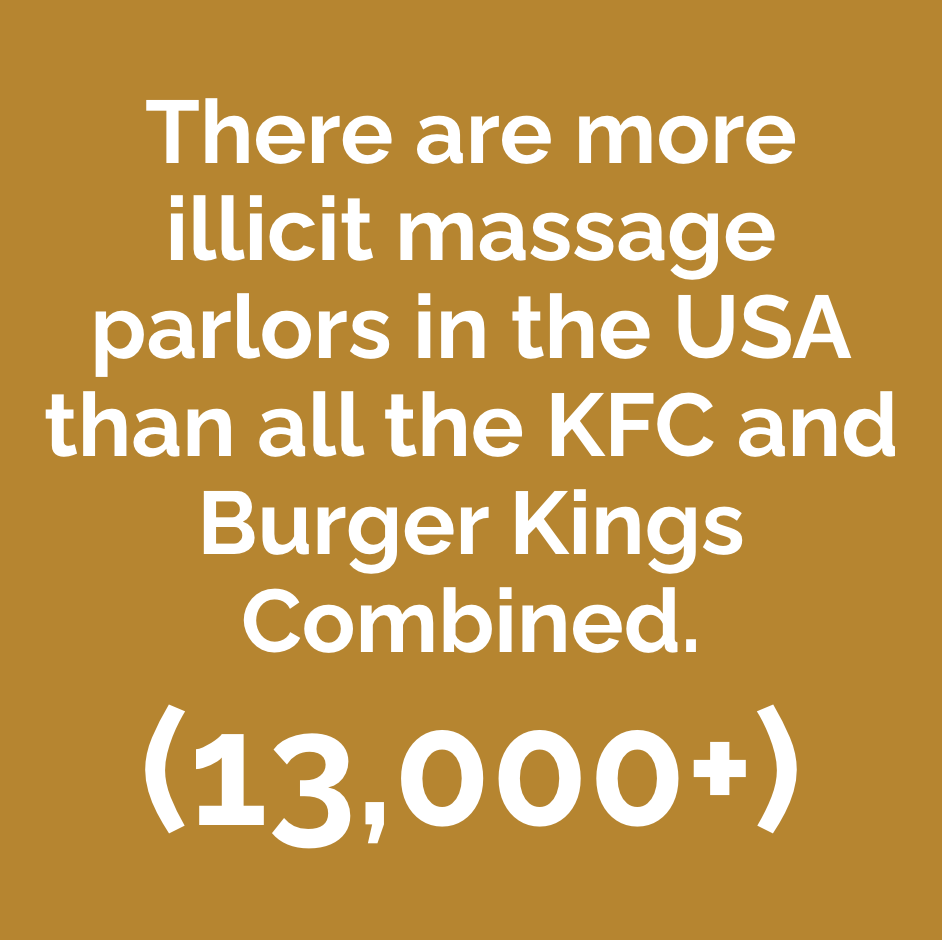
Human trafficking is happening in your hometown.
Most victims know their traffickers personally.
People tend to imagine trafficking as kidnapping or smuggling across borders. That’s not the reality, especially in the United States. In America, trafficking is usually looks more like:
Familial Trafficking
Pimp-Controlled
Commercial Demand
Illicit Massage Businesses
Online Exploitation
Trafficking statistics:
200,000–300,000 youth are at risk for trafficking in the U.S. every year.
Pornography is a primary driver of demand, fueling both child exploitation and violence against women. Read More
The US now hosts more child sexual abuse material online than any other country. Experts predict that without new legislation, the problem will only grow. Read More
The foster-care system is one of the largest on-ramps for child trafficking in the U.S., with LGBTQIA+ children being among the most targeted. Read More
Black, Brown, Latina, and Indigenous children are disproportionately affected by trafficking. Read More

Is your state protecting children?
Shared Hope International’s Report Cards on Child & Youth Sex Trafficking are graded under an advanced legislative framework, providing a comprehensive analysis and assessment of all state statutes related to and impacting child and youth sex trafficking in all 50 states and D.C.
Demand plays a significant role.
Professionals
Doctors
Day Laborers
Lawyers
Sailors
Soldiers
Police Officers
Judges
Teachers
Coaches
When combating trafficking, it is easy to focus on victims and traffickers. We get it! Victims need support, and traffickers need to be prosecuted.
However, buyers (people who purchase sex) are the reason there is a demand for trafficked people in the first place. Without buyers, traffickers would not seek out victims to fill the demand.
So, who are the buyers?
Pastors
Accountants
Security Guards
Construction Workers
Executives
Truck Drivers
Fathers
Brothers
Sons
Community Members
“If you’re not addressing demand, you’re not actually fighting trafficking.”
-Tom Perez, CEO of Epik Project
Educate yourself about sex trafficking.
Education is the best place to start on your journey to ending human trafficking in the United States.













